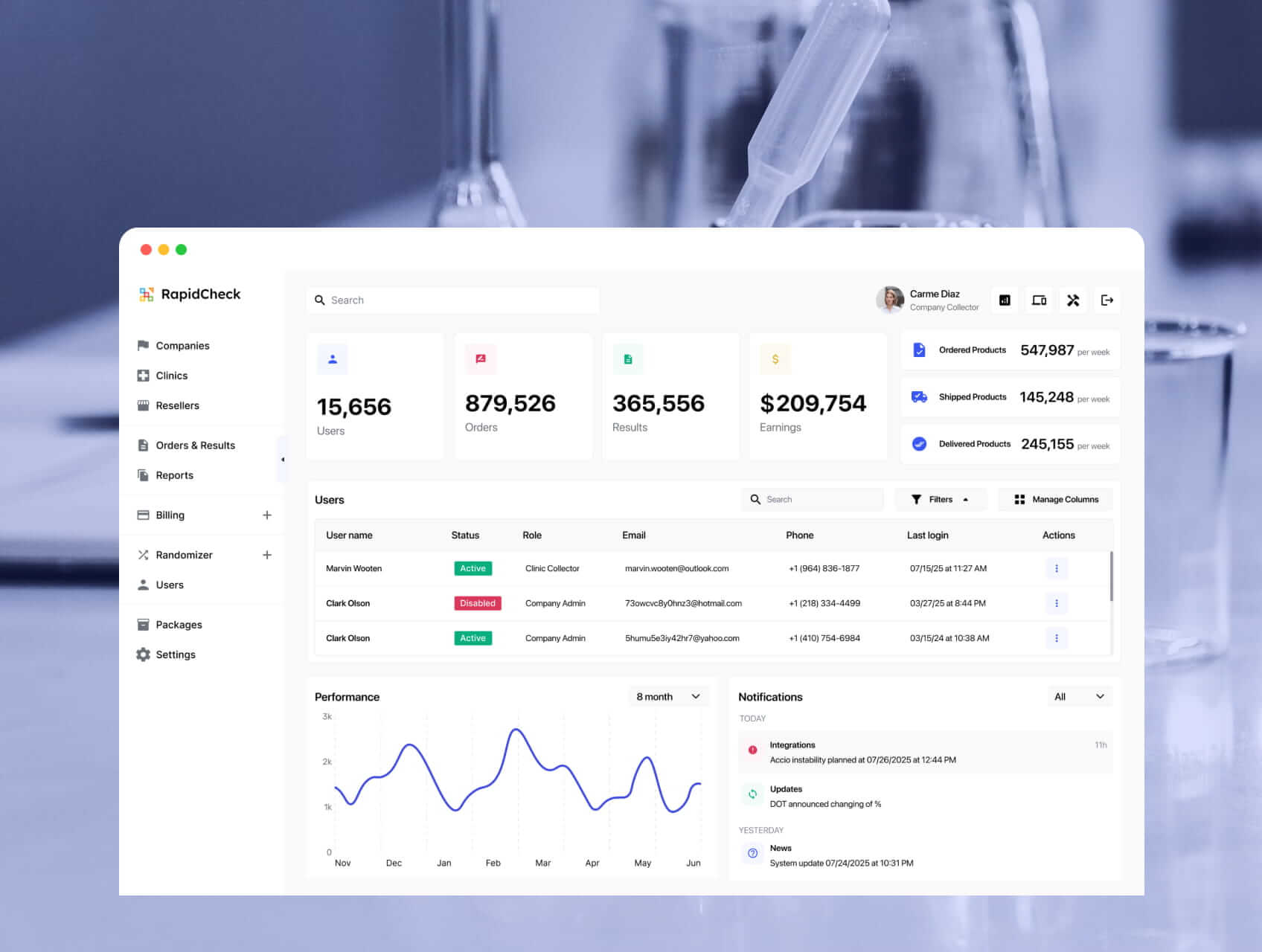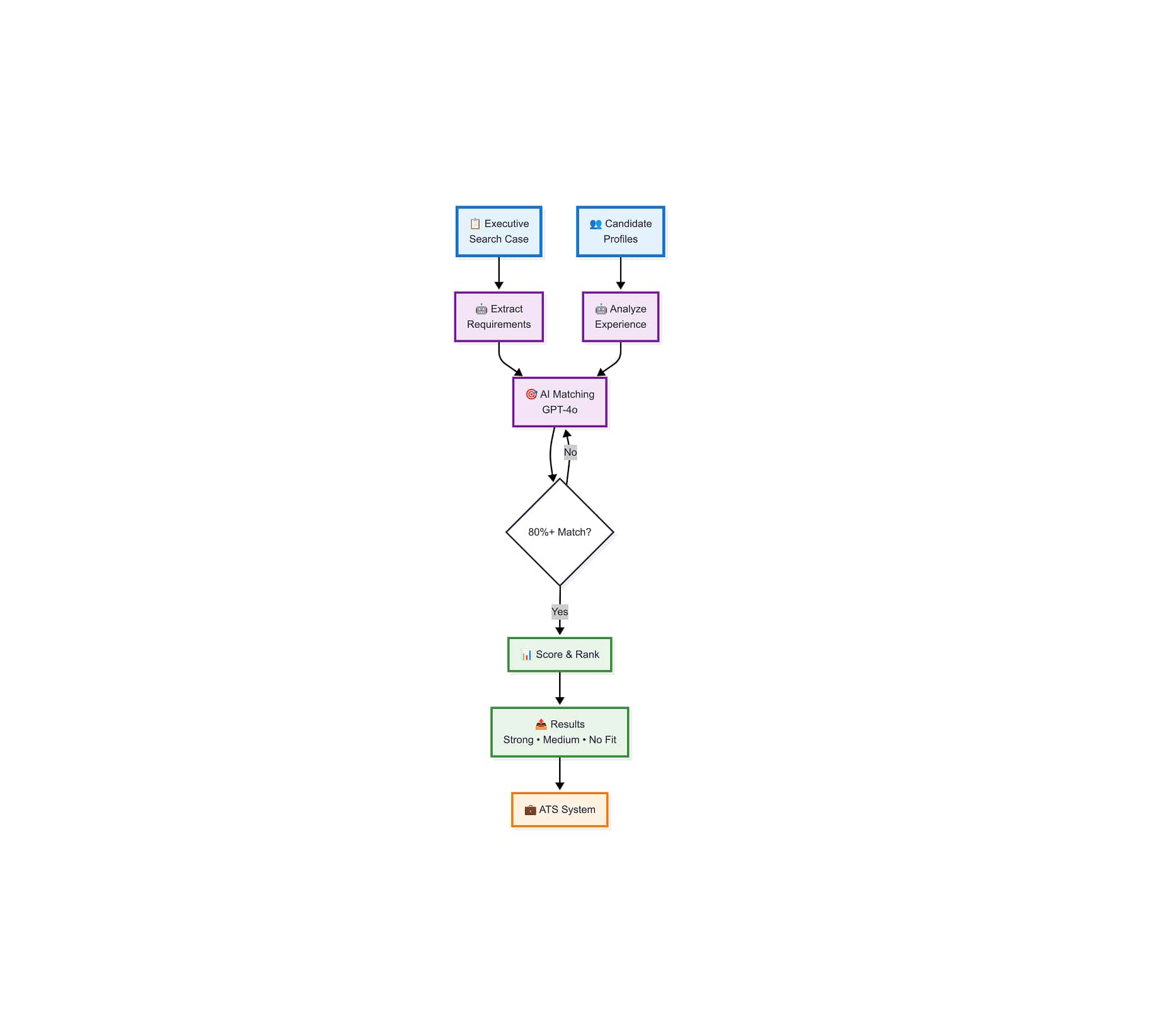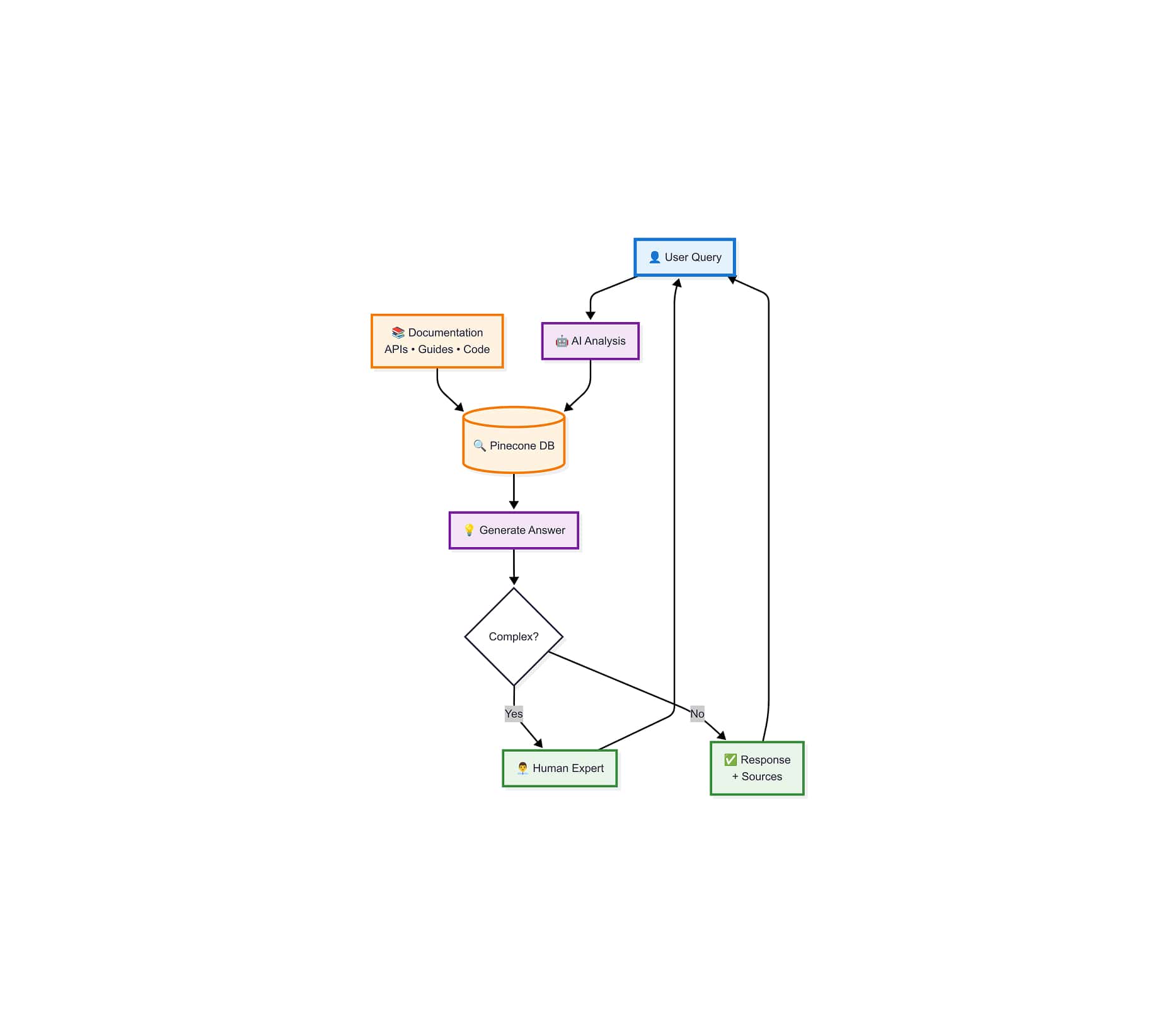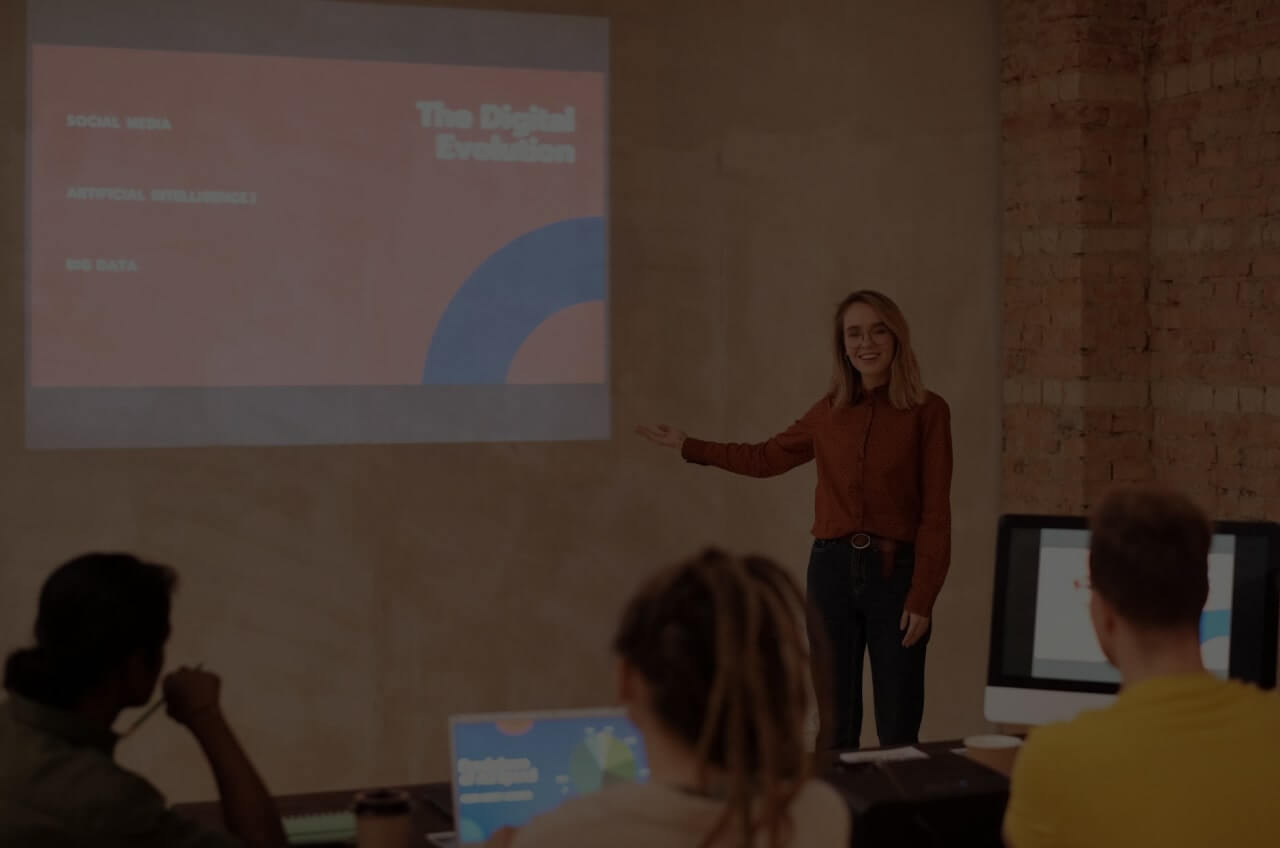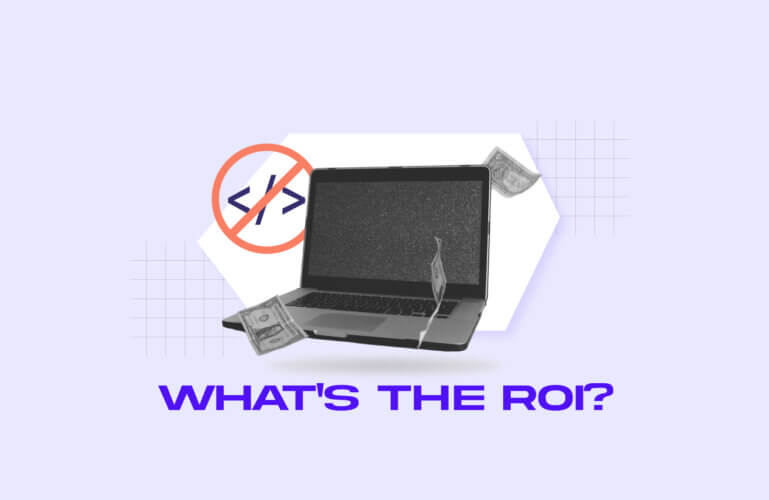How can ML consulting help you?
According to the 2025 MIT NANDA report, 95% of AI pilots fail to produce rapid revenue acceleration. Our job as a machine learning consultancy is to ensure your project is one of the lucky 5%.
Align your business and AI goals
Vague goals lead to endless PoCs with zero business impact. Our consultants help SMEs align AI with business goals. We start with one primary KPI, baseline it, and define kill criteria. To drive the adoption, we involve process owners in metric design, run user testing, provide training and playbooks.
Evaluate the AI readiness
Biased, sparse, mislabeled, or drifting data is another common reason for failure. Our engineers audit the readiness of your data (profiling, leakage checks, label QA) and existing systems. We provide data contracts, acceptance thresholds, and a remediation plan before modeling.
Design production-ready models
We design for prod on day one to cross the chasm between PoC and functioning AI. This includes API/microservice boundaries, contract tests, CI/CD, IaC, latency/cost budgets, and a deployment path.
Improve compliance & security
Our generative AI consultancy specializes in highly-regulated industries, such as healthcare. Prevent costly regulator-driven reworks/shutdowns with data minimization, de-ID, access controls, audit trails, explainability, and documented risk assessments.
Prevent model decay
Adopt reliable MLOps practices. Our consultants set quality, latency, and unit cost SLOs, monitor drift/performance, automate retraining, and maintain lineage/model cards.
Control costs
Inference, labeling, and frequent pivots often come with unexpected costs. MindK helps businesses control expenses with cost SLOs, model right-sizing, batching, and load simulation before committing.
60-minute interview
Separate good ideas from bad ones in 2 weeks or less. These workshops let us document your requirements. We then proceed to user research, competitor analysis, and rapid prototyping. The solution is validated before writing a single line of code.
What you get (free of charge): feasibility snapshot, tailored use‑case suggestions, risk assessment..
Definition of goals and KPI
After the first interview, we'll help you set ambitious yet realistic goals for the AI transformation, backed by measurable KPIs. AI consultants interview stakeholders, analyze existing systems, and data to assess your AI readiness and design an optimal solution.
What you get: prioritized roadmap showing quick wins and long-term bets, success metrics.
Software assessment
Legacy software often needs to support massive datasets to power AI. We investigate the frameworks and libraries used in your apps to understand how to integrate AI capabilities with minimal changes to the current tech stack.
What you get: architecture map, list of integration points, AI barriers & security risks.
Data analysis
Some generative AI use cases require massive amounts of high-quality data. That's why our data engineers assess the quality, volume, completeness, and accessibility to cover all previously defined scenarios and conditions.
What you get: clarity and focus before investing.
Action plan presentation
We present the audit findings along with a step-by-step AI transformation plan. The document details our AI readiness across data, software, and business strategy. We present specific AI solutions to address the issues based on the pain points discovered.
What you get: clarity and focus before investing.
When machine learning is not the answer?
Insufficient data
Low business impact
Early-stage startups
High compliance risk
Data prep and prototyping
We profile schemas, leakage, and bias; de‑identify PHI; map domains (e.g., FHIR in healthcare); and design ingestion/ETL with quality gates and versioned datasets. The team builds baselines and quick models on real samples to reduce risks. We then run offline evaluations and ROI estimations to de‑risk assumptions early.
What you get: proof of concept and API mock, benchmark vs baseline evaluation, ROI estimate.
Full model deployment
MindK trains the model via reproducible pipelines (MLflow/DVC). We add explainability, fairness tests, security hardening, and validate against KPI targets. The team ships a hardened API/SDK, organizes staged rollout (canary/blue‑green), and integrates with your legacy software.
What you get: versioned model artifacts, model card, live endpoint with SLA, integration map, incident runbook.
Improvement and support
Separate good ideas from bad ones in 2 weeks or less. These workshops let us document your requirements. We then proceed to user research, competitor analysis, and rapid prototyping. The solution is validated before writing a single line of code.
What you get: dashboards and alerts, quarterly health report, roadmap updates, and SLA‑backed response.
What is the cost of an AI project?
Consulting and discovery
Custom ML model (PoC)
Enterprise-level ML solution
LLM fine-tuning
RAG AI agent
Enterprise multi-agent system
Ongoing MLOps & support
Need a custom quote?
Proven track record
Since 2009, MindK has consulted over 150 companies, achieving 96% client retention.
Risky action prevention
We implement guardrails to prevent risky autonomous actions and hallucination-based decisions.
Compliance by design
Our machine learning consultants specialize in highly-regulated niches like healthcare.
Transparency first
We explain every decision, from strategy to MLOps. No black-box models
What
our
clients
say
Our engagement models
Start your AI transformation
Contact our machine learning consulting company to discuss your project and business goals.
Our approach
FAQ
- Which business problems are a good fit for ML?
Good fit includes frequent, repetitive decisions with a measurable upside, enough data, moderate-to-high complexity, and realistic latency/cost SLOs.
Poor fit cases involve low-impact tasks, deterministic logic, scarce or low-quality data, or high-stakes decisions requiring formal explainability.
- How much will ML consulting cost, and what drives it?
The cost of AI projects ranges from $3k to $10k for discovery, $15k to $30k for a PoC, and $40k to $150k+ for enterprise–grade systems. The main cost drivers include data quality and labeling, the number and complexity of integrations, compliance (e.g., HIPAA adds 10–25%), latency/SLA targets, and whether new data pipelines are required.
- What data do we need to start, and what is “high quality”?
For supervised ML: 10k–50k+ labeled rows (problem-dependent); for time series: 12–24 months; for RAG: an indexed corpus of authoritative docs.
High quality means accurate labels, representative samples, low missingness/leakage, and recency. We run a readiness audit with acceptance thresholds.
- How will you integrate with our stack with minimal disruption?
Our gen AI consultants use API/SDK boundary with contract tests. We first go for read-only shadow, then perform canary rollout with feature flags, with rollback in seconds.
- How do you handle security, privacy, and compliance?
We employ least-privilege access, encryption in transit/at rest, DLP/redaction, audit trails, and model cards. For high-stakes use, our machine learning consultants add explainability and documented risk assessments, PHI de-identification, and access logs by role.
- Who owns the IP, models, and code? How do we avoid lock-in?
By default, you own code, configs, and models trained on your data; third-party licenses apply where relevant. We use portable standards (MLflow/DVC/ONNX), infrastructure-as-code, and provide an exit pack (artifacts and runbooks).
- When is LLM fine-tuning justified?
Fine-tuning is only justifiable if it beats a strong baseline on your gold tests (e.g., ≥10–20% accuracy/consistency lift). Our gen AI consulting company enforces unit-cost guardrails and right-size models to keep bills predictable.


